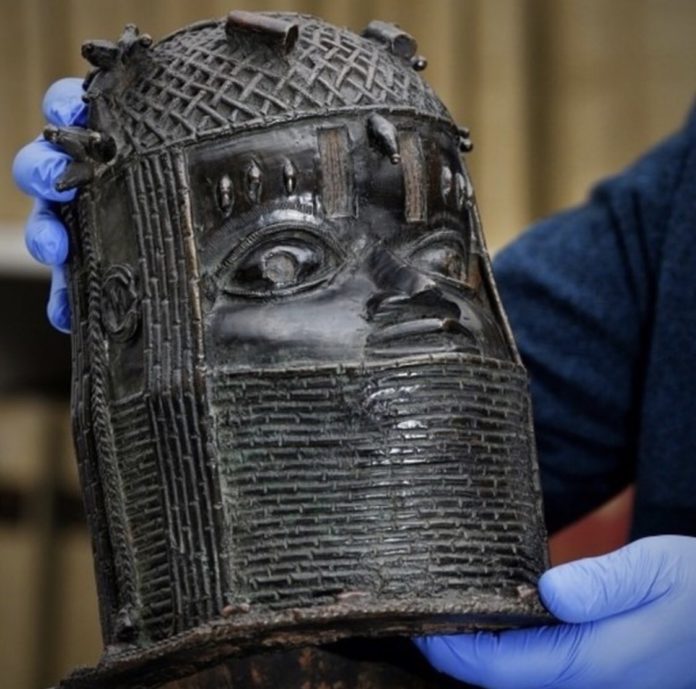The University of Aberdeen on Thursday said it would return a Benin Bronze artefact to Nigeria within weeks.
This is one of the first public institutions to do so more than a century after Britain looted the sculptures and auctioned them to Western museums and collectors.
The university said the sculpture of an Oba, or ruler, of the Kingdom of Benin, had left Nigeria in an “extremely immoral” fashion, leading it to reach out to authorities in 2019 to negotiate its return.
Pressure has mounted to return to their places of origin the Benin Bronzes – actually copper alloy relief sculptures – and other artefacts taken by colonial powers.
Neil Curtis, Aberdeen’s head of museums and special collections, said the Bronze, purchased in 1957, had been “blatantly looted.”
“It became clear we had to do something,” Curtis said.
Professor Abba Isa Tijani, director general of Nigeria’s National Commission for Museums and Monuments, said the importance of displaying the Bronze inside Nigeria for the first time in more than 120 years was inexpressible.
“It’s part of our identity, part of our heritage… which has been taken away from us for many years,” Tijani said.
Britain’s soldiers seized thousands of metal castings and sculptures from the Kingdom of Benin, then separate from British-ruled Nigeria, in 1897.
The British Museum, which holds hundreds of the sculptures, has alongside several other museums formed a Benin Dialogue Group to discuss displaying them in Benin City, some officially on loan. It has said discussions are ongoing.
Germany is in talks to send back 440 Benin Bronzes as early as the autumn, according to newspaper reports, while the University of Cambridge’s Jesus College said it had finalised approvals in December to return another Bronze. Tijani said U.S. museums had also agreed to return two more Bronzes.
The governor of Edo state, of which Benin City is the capital, plans to build a centre to store and study the returned artefacts by the end of 2021, and a permanent museum by 2025.
Artist and Edo state native Victor Ehikhamenor said he hoped the decision would prompt others to follow suit.
“Because some of these things are missing from our environment, people are not able to contextualize where we are coming from,” Ehikhamenor said.

